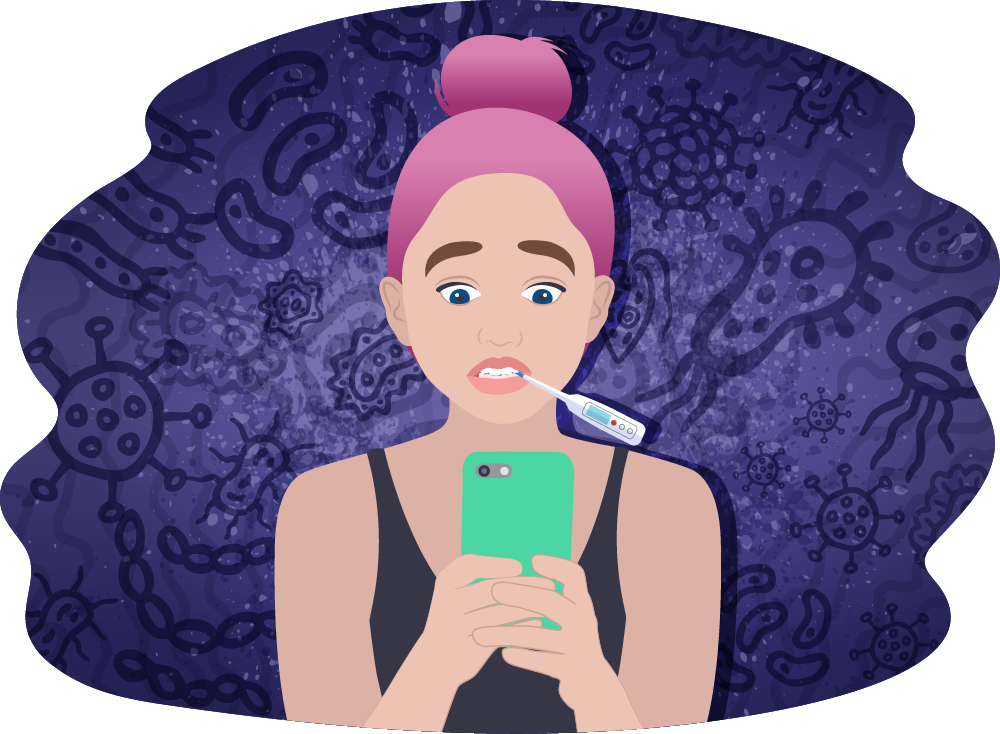Obsessive Compulsive Disorder (OCD)
Let’s look at what OCD is and explore how to cope ...
READ MEHave you ever experienced an unusual physical symptom and thought, "Oh no, what if that means I'm dying?" It’s normal to be concerned for your own health and the health of people you care about, like family and friends. Let’s look at how to cope.

Normal health anxiety looks like:
Here are some strategies to help you be informed and prepared.
Get info from trustworthy sources. Make sure any information you access is evidence-based and reputable.
Limit your exposure to media. Too much info can be overwhelming, especially if it’s only focusing on the worst-case scenario.
Focus on what you can control. For example, you can practice good hygiene etiquette, and work on lifestyle factors that contribute to good health, such as eating a healthy diet.
Have a plan for medical emergencies. A plan will include your family and other supports. It might include things like monitoring and keeping a record of symptoms, knowing when and where to get medical help, packing an emergency bag and ensuring everyone knows their role.
If your health is good, and there are no other reasonable reasons to worry, you might be experiencing ‘Illness Anxiety Disorder’ (IAD). Some people with IAD regularly see doctors about their health concerns. But some people avoid medical help altogether.
Here are some of the common symptoms of IAD:
Fearing you have multiple diseases
Finding it hard to focus on other things
Spending a lot of time worrying about health
Becoming more anxious the more you read/research
Experiencing these symptoms for six months or more
Repeatedly checking or researching symptoms, i.e. Googling symptoms multiple times a day (this is sometimes called 'cyberchondria')
The first step is to manage your anxiety. When we feel anxious, parts of our brain that are responsible for higher level thinking may not be functioning at their best. This means that we can’t think clearly, make plans, or solve problems as well as we normally could. Here are some helpful resources for understanding and coping with anxiety:
Obsessive Compulsive Disorder (OCD)
Let’s look at what OCD is and explore how to cope ...
READ MEHow to manage anxiety
Anxiety can feel overwhelming, but there are some simple steps you can ...
READ MECoping strategies
If you are feeling stressed, anxious or just struggling to deal, there ...
READ MEYour brain when you're anxious
The brain is very complex! But let’s simplify things a bit, ...
READ METalking helps! We’re here for you.
No problem is too big or too small.
We're here 24 hours a day, 7 days a week